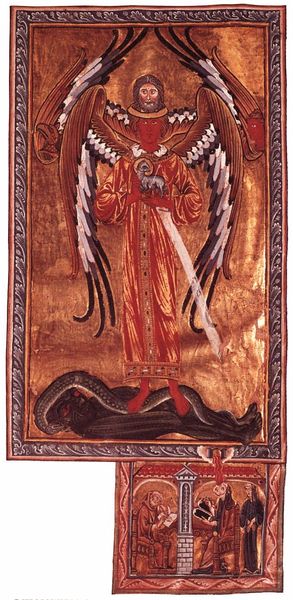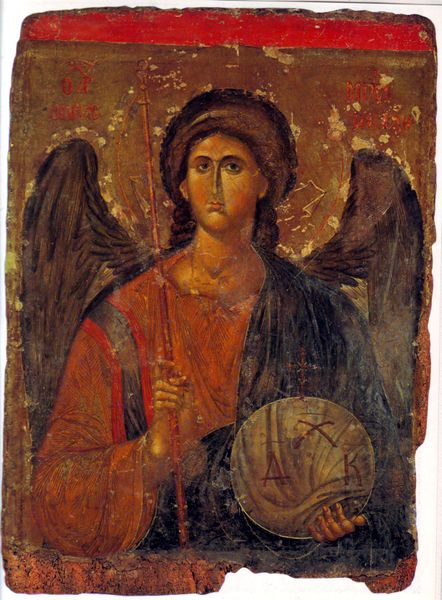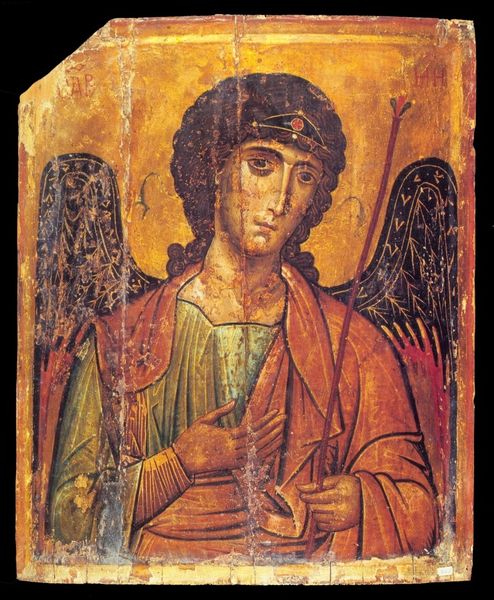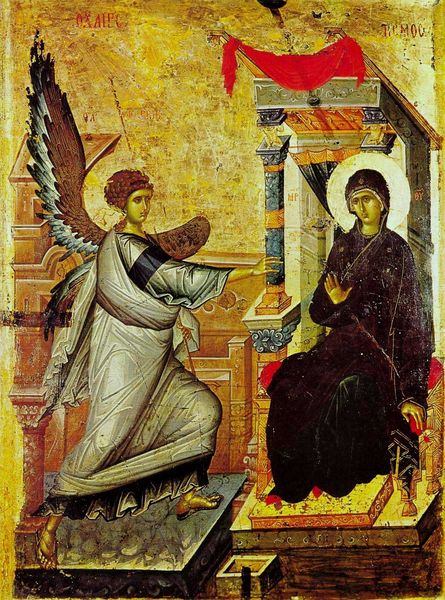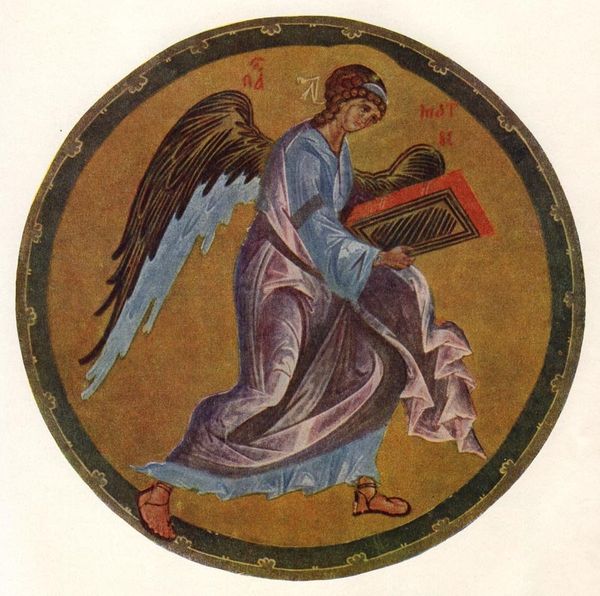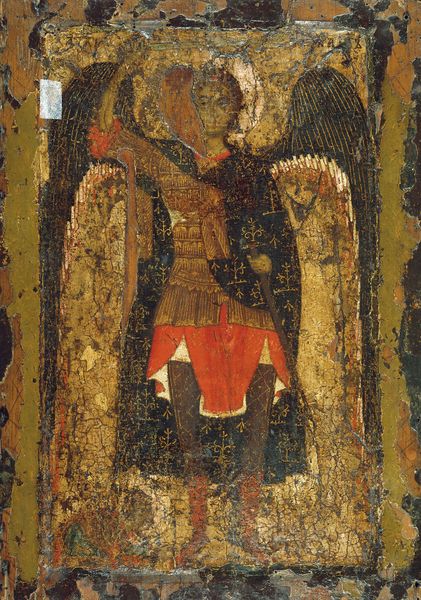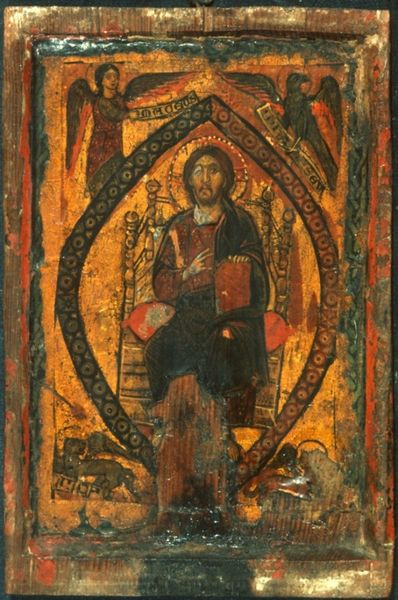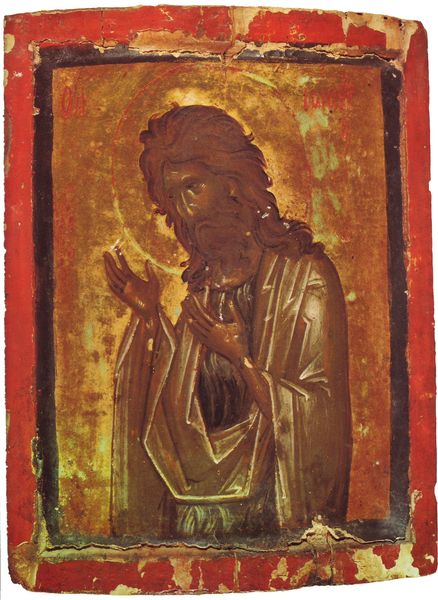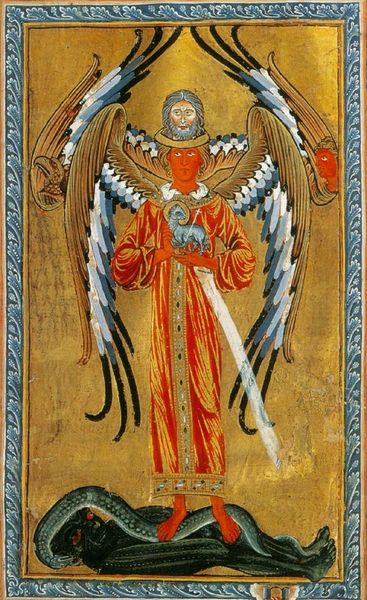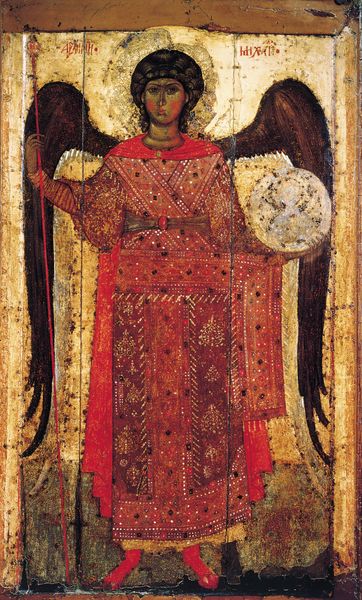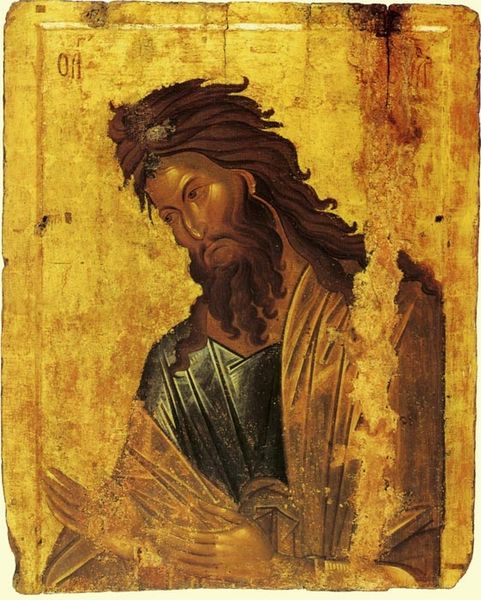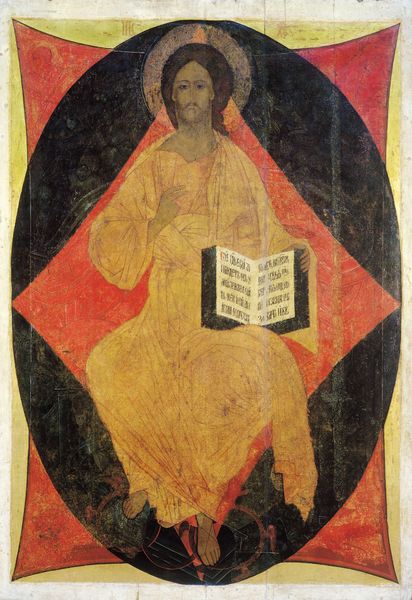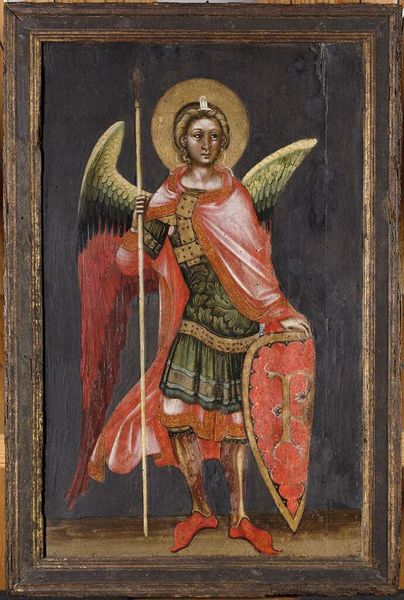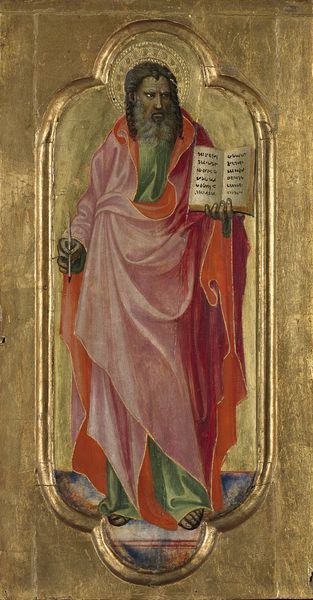
tempera, painting
#
portrait
#
byzantine-art
#
narrative-art
#
tempera
#
painting
#
figuration
#
oil painting
#
history-painting
Copyright: Orthodox Icons,Fair Use
Editor: Here we have a 17th-century Russian icon titled "John the Baptist - Angel of the Desert," crafted with tempera. It's a rather striking image, the earthy tones give it this solemn feeling. What aspects of this work particularly stand out to you? Curator: The tempera is significant. Consider the labor invested in its preparation – grinding pigments, mixing the emulsion, the deliberate layering. These are not just colours; they represent a profound connection to materials sourced directly from the earth. It’s this hand-crafted, repetitive action that links the artist to a long history of icon production and belief. Editor: That's a great point! So the choice of tempera and the process itself adds layers of meaning, connecting it to past artistic traditions and almost a spirituality connected to working with natural elements? Curator: Exactly! Think of the social context: who commissioned this piece? For what purpose? Was it a personal devotional object or intended for communal worship? Each decision about materials and the mode of production was imbued with social and religious significance, influencing the artwork’s reception and function within its community. We might even speculate about trade routes for specific pigments! Editor: That really shifts my understanding. I was so focused on the iconography and symbolism. Now I see the painting as more than just a religious image but also a product of its specific historical, material, and social conditions. Curator: Precisely. The 'spiritual' is thus not separated from the practical means through which the artwork comes into existence. What do you take away from this perspective shift? Editor: I'll definitely be looking closer at materials and production processes. Thanks!
Comments
No comments
Be the first to comment and join the conversation on the ultimate creative platform.
